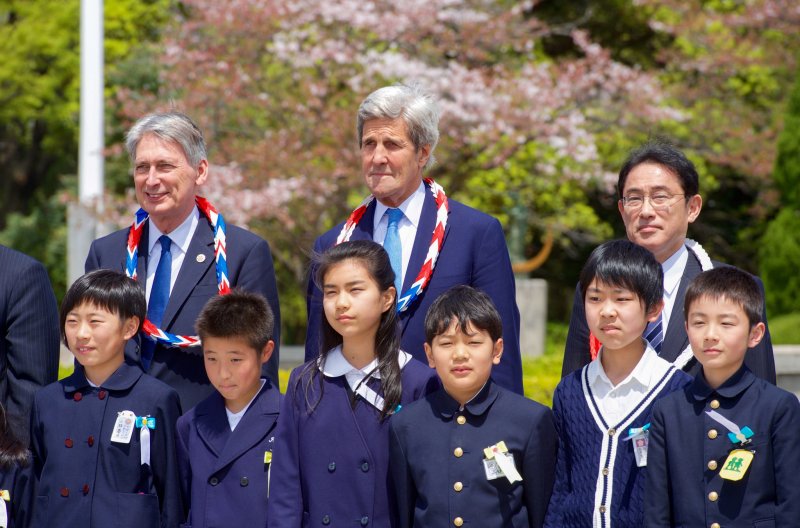HIROSHIMA, Japan, April 11 (UPI) -- Secretary of State John Kerry on Monday became the first U.S. official to visit the Hiroshima memorial in Japan, site of the world's first atomic bombing.
Kerry, part of several foreign ministers in Hiroshima for the G7 meetings, laid wreaths at the memorial cenotaph inside Hiroshima Peace Memorial Park and paused for a moment of silence. Around 140,000 people were killed when the United States dropped an atomic bomb on the city in 1945 at the end of World War II.















